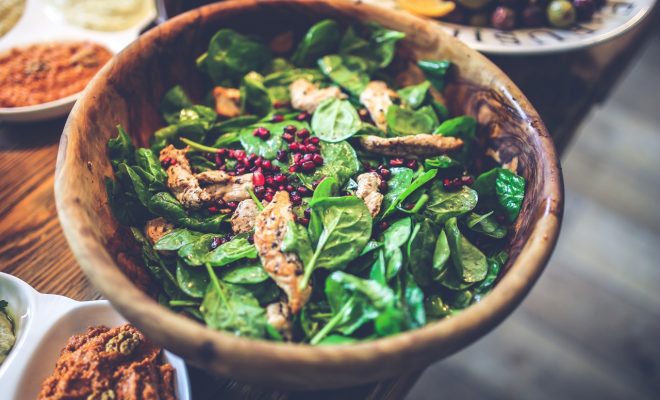
Mind and Body
Your Guide To Cooking With Fats
With so many radically confusing information out there about dietary fats, I am often asked which fats are OK and which are not.
Following is a guide which I hope will clarify this hot topic for you.
For cooking
Nutritive oils with high smoke points. Coconut oil, avocado oil, and grass-fed ghee (clarified butter) are your best bets for cooking, due to their higher smoke points, which means they maintain a stable composition when heated. Using less stable oils with lower smoke points for this purpose, such as walnut oil, will quickly change the structure of it and result in oxidation and toxins that cancel out it’s naturally occurring beneficial compounds. Coconut oil is rich in medium chain triglycerides, which are great for energy production and may even aid weight loss.
For drizzling on veggies & salads
Organic extra-virgin cold-pressed oils. Flaxseed oil, walnut oil, hempseed oil, and other nut and seed oils offer many health benefits and delicious flavors. They’re rich in unsaturated fats, making them a poor choice for cooking but wonderful for drizzling and topping a wide variety of dishes. Olive oil can be used for cooking at very low heat and is also great for garnishing a dish before serving; it’s particularly great for the heart thanks to it’s monounsaturated fats. Flax, walnut and hemp oils all provide anti-inflammatory omega-3 fatty acids.
To eat
Nut butter from almonds, cashews, walnuts and pecans or seed butter, like tahini and sunflower seed butter are delicious sources of good fats that can be eaten with a spoon or used in many different kinds of recipes, as are coconut butter and avocados. Just look for organic ones without any added oils or sweeteners. You can also opt for whole raw nuts and seeds, but again look for those without added oils or sweeteners (and bonus points for eating them sprouted).
Grass-fed, pasture-raised animals and wild-caught low-mercury seafood
When animals are given room to roam, forage and eat a natural diet full of diversity, they produce high-quality meat with high-quality fats. And yes, saturated fats are okay! As long as they’re from clean sources they are good for you and can even improve the quality of LDL cholesterol and increase beneficial HDL cholesterol. Sardines, salmon, mackerel, herring, and black cod are all sources of anti-inflammatory fats, too, without the toxicity other seafood options can carry.
I hope this helps you incorporate many new and nutritious healthy fats into your diet.
Wishing you all good health,
Dr Chris Ravesi
Comments
Dr Chris Ravesi Naturopathic Physician & Acupuncturist Over three decades, Chris has developed a reputation for his skills, dedication and his personable approach. His insatiable quest for knowledge in this chosen field has meant numerous educational journeys to both Europe & the USA. Chris’ special interest lies in integrating new research and technologies into a traditional approach to health care.
























0 comments